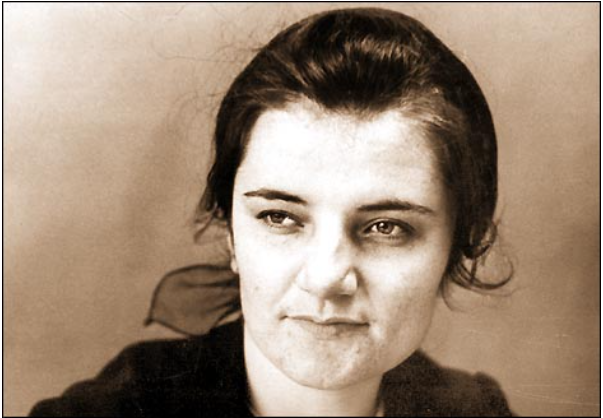On the night of 30 November 2002, Malika Umazheva, head of the administration in the Chechen village of Alkhan-Kala, was murdered. The entire evening before it happened, masked Russian soldiers had been driving around in the streets, and at midnight they broke into her house, shot, and killed her.
Malika Umazheva became head of the village administration in June 2001. At that time, Chechnya was suffering under endless clean-up operations. Russian military blocked cities and villages and fired at residential areas without letting the civilian population escape. Then they broke into houses and grabbed people there, mainly young men. They were taken to filtration camps and subjected to interrogations, beatings, and torture. Not everyone was released. Some were murdered and their disfigured corpses were later found in places where military posts had been located. Others disappeared.
In Soviet times, and as a member of the Communist Party, Malika Umazheva was elected several times to the Grozny Council for People’s Representatives, the elected body of the region. She was not in favour of separating from Russia and said the Chechen leaders who set the course to build an independent government in the 90s were irresponsible opportunists. During those years, she held no official post and lived at home with her mother, brother and two nieces. But when the war began, she was among those who rose up in defence of her people. At first, she headed an informal organization where everyone except her were men. And after the murder of the third head of the local administration she agreed to take on this mortally dangerous post.
As head of the village, she entered into negotiations with the Russian military, demanding that they observe the law while carrying out clean-up operations, and tried to get the detained released. As a human rights defender and a supporter of peaceful action when defending the rights and freedoms of her fellow villagers, she organized protests, blocked the entry of Russian military into the village, brought people outside so they could always see each other, thereby minimizing the chances of crimes being committed against them. And she always walked towards machine guns aimed to shoot and the raised barrels of armoured personnel carriers herself.
As a result, she was threatened, not only by Russian soldiers, but by ethnic Chechen officials placed by them in the administration as well. In the middle of April 2002 there was yet another clean-up operation in Alkhan-Kala, accompanied by kidnappings and murders. The officers leading the operation tried to force Malika Umazheva to sign a document stating she had no complaints against them, and that they had acted correctly and not broken any laws, but she refused. Over the next few days, her house was ransacked and shot up and her valuables were broken. During one of these visits, the soldiers allegedly promised that if she would not sign the document, she’d be “blown up together with her house”.
But the matter was not limited to threats of physical violence. The head of the General Staff of the Russian Army declared that during a search of Malika Umazheva’s house they had supposedly found a throve of diamonds and gold, as well as 600,000 USD. These lies were then spread in mass media by members of the Presidential Administration of the Russian Federation.
At the end of that summer and the beginning of fall, the pro-Moscow authorities in Chechnya relieved her of her position. She went to Court to defend her position as head of the village, and the Court found in her favor. She was supposed to go to work on the 1 December 2002 but Russian soldiers in masks came to her home the night before.
Malika Umazheva cooperated with Russian and foreign human rights organizations, she met with officials from international organizations that travelled to the North Caucasus to collect testimonies about violations against the civilian population and to carry out monitoring of the situation. She was invited to a conference in Moscow in November 2002, devoted to finding a way of regulating the armed conflict in Chechnya.
The murder of this brave woman, as well as the crimes against the heads of tens of other villages in Chechnya and against civil activists have not been investigated. But the memory of her lives on in the republic, not only among her fellow villagers. Hundreds of documents about her life and her death, including messages from human rights organizations published in mass media, procedural documents have been collected and systematized in the electronic database of the Natalia Estemirova Documentation Centre (NEDC) at the Norwegian Helsinki Committee.
Publications about her will soon be available on our website.
